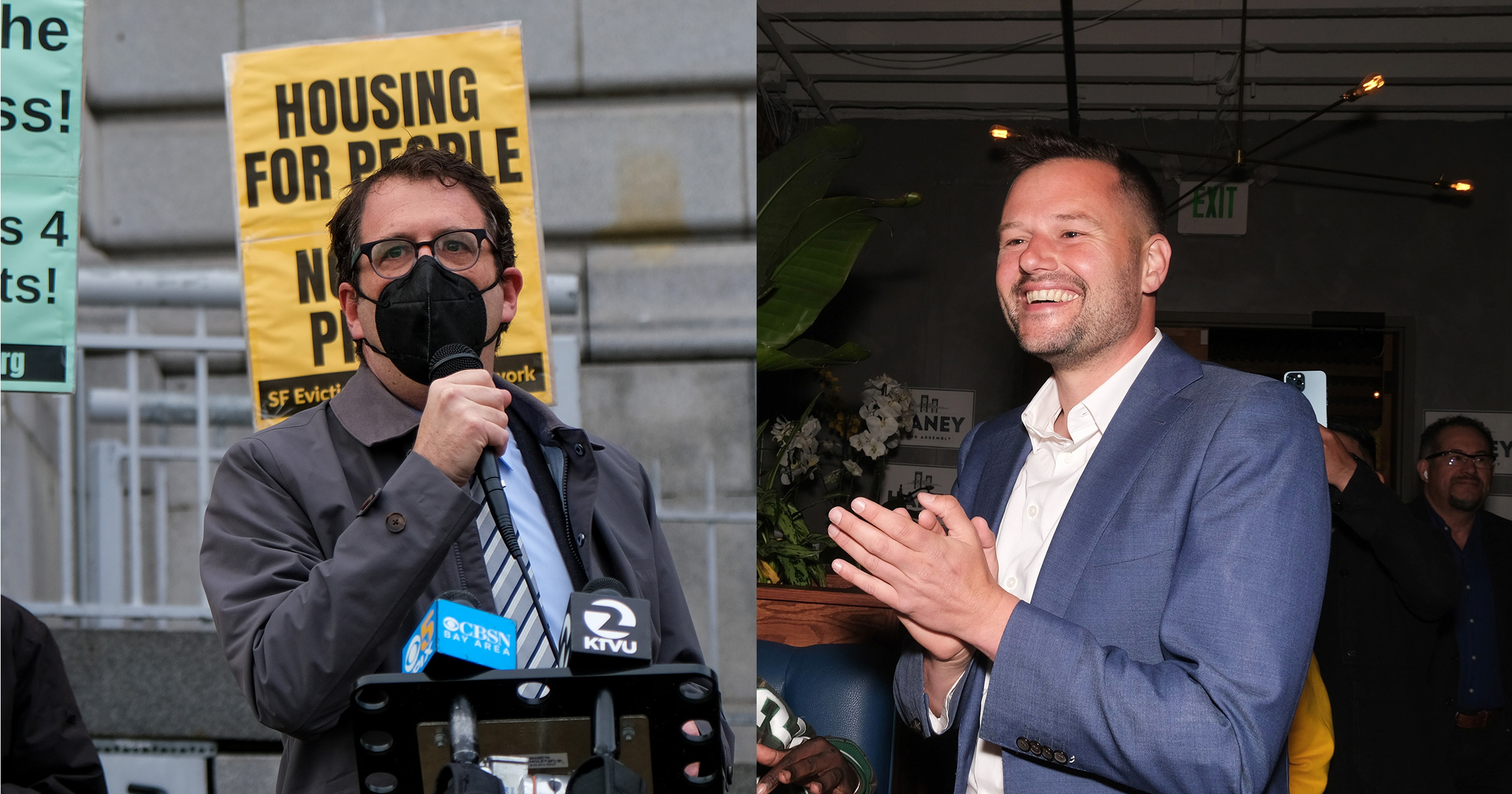Plenty has been written about how voters in “America’s premier metropolitan progressive bastion,” a.k.a. San Francisco, are supposedly rejecting a “leftward lurch” in favor of a more centrist approach to governing. But is this really happening?
The recent Assembly race, where moderate Matt Haney trounced veteran progressive standard-bearer David Campos, provides some clues.
In the city’s District 5, arguably San Francisco’s most progressive area and home to the Haight -Ashbury neighborhood, voters twice elected Green Party members in the 2000s. Dean Preston, the first Democratic Socialist to sit on the Board of Supervisors in 40 years, has represented the district since a narrow 2019 election victory.
Further demonstrating its progressive bona fides, the district ranks as the city’s most lefty in a 2015 progressive voter index created by political scientist David Latterman. When Campos ran for the same seat in 2014, he won with 53% of the vote.
With that in mind, it might have been a surprise to see all the precincts in District 5 up for election supporting Haney in the recent contest: a 26-point swing on average. And in the 10 precincts where Preston was elected by the largest margins in 2019, they voted for Haney over Campos by margins ranging between 15% and 43%, meaning the total point differential between Preston and Haney was between 29 and 57 points.
Hover over the interactive maps to compare moderate Matt Haney’s 2022 win to progressive Dean Preston’s 2019 win
How Dean Preston’s top 10 precincts in 2019 fared in the recent Haney-Campos election
What makes Haney’s win seem like even more of a political about-face for District 5 is that the 2019 and 2022 races had similar policy dynamics, said Eric Kingsbury, the District 2 Democratic club president. Vallie Brown (who lost to Preston in 2019) and Matt Haney (who won in 2022) both shared an explicit pro-housing stance, while Campos—in some ways similar to Preston—was seen as focused solely on affordable housing.
Kingsbury said one possible explanation for last week’s election results is that Trump was president when Preston won his race, and the focus since that time has shifted from defeating a demagogue to the pandemic and day-to-day quality-of-life issues in San Francisco.
“Progressives tend to do well when they speak about the issues of the national political zeitgeist, such as income inequality, rapacious capitalism, and the things you hear about in the national news,” Kingsbury said. “But when the salience of those issues is not as high, you tend to see moderates do better when they run on the basics of municipal governance.”
But this still can’t fully explain the massive point differential in victory between Preston’s 2019 victory and Haney’s 2022 victory, said Latterman, the political scientist.
“Post-Covid, with people waking up from being yelled at for not being woke enough, I do think the political winds are shifting, but not 30 points away,” he said. “This race had more to do with the personalities than just policies.”
Political insiders told The Standard that Campos ran a weak campaign, especially when it came to “framing the discussion on housing in binary terms in which affordable homes are mostly pitted against luxury condos.”
The results could signal trouble ahead for progressive supervisors such as Preston and for progressive District Attorney Chesa Boudin, who is currently facing a June recall election after winning the post by a whisker in 2019.
Both Preston and Boudin’s anti-recall campaign said they were unfazed by last week’s results.
Boudin’s anti-recall campaign distanced themselves from the Campos’ loss, saying through a spokesperson that “this is a completely different election with a different electorate, different candidates and different issues,” and that many of Haney’s endorsers are also anti-recall.
And Supervisor Preston thinks that this race was an aberration, pointing to the recent election’s weak turnout (the lowest in San Francisco in at least a decade) and that he solidly won his 2020 re-election, where turnout was 88%, as evidence.
“Neoliberals have been declaring the death of progressive D5 since Green Party Supervisor Matt Gonzalez was elected 20 years ago,” he wrote in a statement to the Standard. “It wasn’t true then and it isn’t true now. This is the home of the Haight and the Fillmore — it has been and remains a solidly progressive district.”
